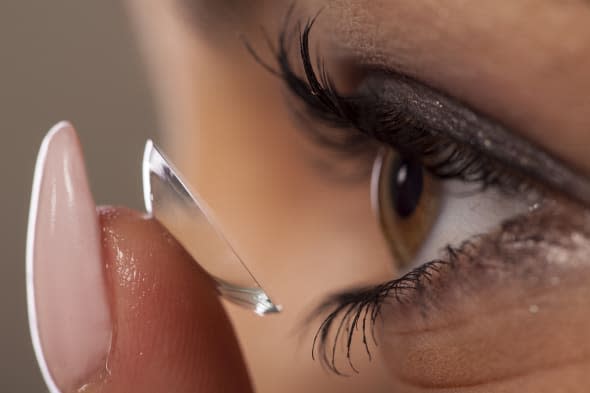Contact lens bacteria linked to risk of eye infections

It has been known for a while that contact lens wearers are more likely to suffer from eye infections than the rest of the population – but scientists may just have found out why. And it seems that the answer was staring them in the face all along, so to speak...
Related Searches
Getting an eyeful
Researchers at New York University's Langone Medical Center have found that those who use contacts – and that's an estimated 71 million people worldwide – have radically different micro-organisms in their eyes to those who don't wear them.
They studied the bacteria found in the eyes of wearers and non-wearers and discovered that the former group had notably higher bacterial diversity.
"Our research clearly shows that putting a foreign object, such as a contact lens, on the eye is not a neutral act," said lead reseacrher Maria Gloria Dominguez-Bello. "These findings should help scientists to better understand the long-standing problem of why contact lens wearers are more prone to eye infections than non-lens wearers."
%VIRTUAL-AFCSponserAds%So what did they find?
The research suggested that the bacteriological make-up of lens wearers was closer to that of human skin than it was to normal eyes – with an average of 5,245 distinct strains. The lens wearing subjects were discovered to have around three times the nomral amount of methylobacterium (which is often found in soil, sewage, and leaf surfaces), acinetobacter (which is found in soil and water and is responsible for the great majority of infections) and pseudomonas (which can lead to ear infections and more serious issues).
What does that mean?
They haven't reached any conclusions yet, but Jack Dodnick, a professor of ophthalmology involved in the study, focused on the link with skin bacteria.
"There has been an increase in the prevalence of corneal ulcers following the introduction of soft contact lenses in the 1970s," he said. "This study suggests that because the offending organisms seem to emanate from the skin, greater attention should be directed to eyelid and hand hygiene."
One surprise was that lens wearers had less staphylococcus bacteria on their eyes – a bug normally linked to eye infections. "We hope our future experiments will show whether these changes in the eye microbiome of lens wearers are due to fingers touching the eye, or from the lens's direct pressure affecting and altering the immune system in the eye and what bacteria are suppressed or allowed to thrive," said Dr Dominguez-Bello.
So do I need to stop wearing my lenses?
That's entirely up to you, but serious infections of the cornea affect about four-in-10,000 contact lens wearers, while around six-in-100,000 wearers lose vision each year through infection.*
If you are wearing lenses, it's worth following a few simple tips for good hygiene with them...
– Always wash and dry your hands before handling the lenses.
– Only use fresh solution to clean and store lenses
– Do not wear your lenses overnight
– Consider giving up smoking to reduce your chances of infection, among very good other reasons.
* Statistics from the British Contact Lens Association




